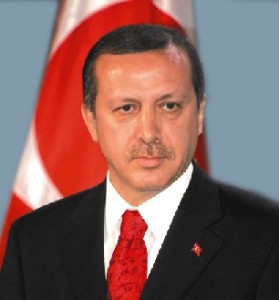He’s lauded as a steward of Islamic democracy. He’s helped boost Turkey to its place as the world’s second fastest-growing economy. Though not an Arab, he’s the most admired world leader among Arabs, according to a University of Maryland poll. His diplomatic missions bring out throngs of cheering crowds that could make a rock star jealous.
And he’s apparently quite good at winning online popularity contests, too. Turkey’s prime minister, Recep Tayyip Erdogan, was the far-and-away favorite in TIME’s 2011 Person of the Year poll. He received 122,928 votes nominating him as the most influential person of the year. The three-term Turkish PM blew away every competitor; second-place challenger Barca striker Lionel Messi earned a mere 60% of the votes (74,412) that Erdogan did, with The 99% taking a healthy third.
Though it’s not all rosy for Erdogan (pronounced Erd-waan; the g is silent), A majority of voters indeed voted “No,” arguing he should not be TIME’s Person of the Year. More than 180,000 votes were cast in the negative for the lauded politician, and his margin of “No” votes was even greater than the positive ones: The 1% was the second least-favorite candidate with 34,489 votes, a paltry 20% of Erdogan’s negative clicks.
So how did Erdogan earn the title of both most and least-favored Person of the Year? A viral campaign circulating on Turkish websites and via email kept the worldwide audiences voting. According to The Wall Street Journal, an email chain letter warns Turks of the consequences of voting Erdogan as TIME’s Person of the Year. “I hope you can imagine what the consequences of winning this kind of a poll would be for someone craving to be a Sultan, and by participating in this voting, I invite you to not allow this environment to evolve,” it reads.









